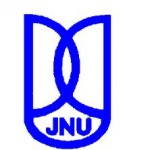|
Focus of Research: Structural and functional Studies of functionally important Proteins of the gastric infectious Organisms (E. histolytica & H. pylori)
Gastric infections are the most common diseases in developing and under developing countries due to unhygienic conditions. These infections are generally caused by Helicobactor pylori and Entameoba histolytica and these pathogens produce serious health effects. According to WHO statistics the number of infections caused by these two organisms put together are the highest number in the world and there are several cases of drug resistance cases emerging for these infections. Our lab is focused on these organisms to study the structure-function relationship of the important functional proteins, and potential drug targets of these pathogens.
i) Cysteine biosynthetic pathway and Sulfur metabolism in E. histolytica
Sulfur is an essential nutrient for the growth and development of all organisms and plants, including pathogenic protozoan like Entamoeba histolytica, Leishmania and Trichomonas. In bacterial sulfur assimilation, cysteine biosynthesis plays a central role in fixing inorganic sulfur from host cells. Sulfate activation pathways were shown to be crucial for survival of E. histolytica and M. tuberculosis. Cysteine is crucial for survival of E. histolytica and Trichomonas and it is only thiol in E. histolytica acting as a cellular reducing agent. Serine - Cysteine biosynthetic pathway and sulfate activation pathways are crucial for survival of E. histolytica. We are studying structure and function of all these proteins and also trying to develop inhibitors for these proteins. So far we have determined and reported the structures of Serine Acetyl Transferase (SAT) from E. histolytica and explained the reasons for lack of cysteine synthase complex formation (Kumar et al., 2011). With mutational and kinetic experiments with SAT isoform 3, explained the reasons for differential feedback inhibition for different SAT isoforms (Kumar et al., 2013). We also reported the structure of O-acetyl Serine sulfhydrylase (OASS) from E. histolytica and L. donavani (Chinthalapudi et al., 2008; Raj et al., 2012; Raj 2013) and elucidated the active site difference in these OASS structures explaining LdOASS can form cysteine synthase complex with SAT from any organism. We have also screened the inhibitors for EhOASS up to micro molar binding affinity (Nagpal et al., 2012), which could be potential drugs.
ii) Understanding the phagocytic cup formation in E. histolytica
E. histolytica is highly motile and displays high level of phagocytic activity in the trophozoite stage. Motility and phagocytosis are essential processes for the survival and invasion of host tissues by the parasite. As the parasite lacks channels and transporters, it depends on phagocytosis for survival. Ca2+ and its binding proteins, Cytosketal proteins and several signaling proteins are involved in phagocytic cup formation. We are trying to understand the structure and function of all these proteins and their specific role in phagocytic cup formation.
iii) Replication initiation in H. pylori
Helicobacter pylori (H. pylori) is a gram-negative, microaerophilic spiral shaped bacterium that infects more than 50% of the human population globally and is responsible for causing chronic gastritis, peptic ulcer and gastric cancer. Replication system in H. pylori has unique features compared to other well studied microorganisms like E. coli and Bacillus subtilis. Replication of chromosomal DNA is generally a universal process that requires a high degree of accuracy and precision to maintain fidelity in the transmission of genetic material from one generation to the next. This unique process involves multi-protein complexes that help to check the inevitable errors associated with DNA replication. The structural and functional studies of this replication initiation process are important for future drug development.
Jawaharlal Nehru University,
New Delhi
110067 INDIA
Phone: +91- 011 011-26704513
Email: sgourinath@mail.jnu.ac.in
|

